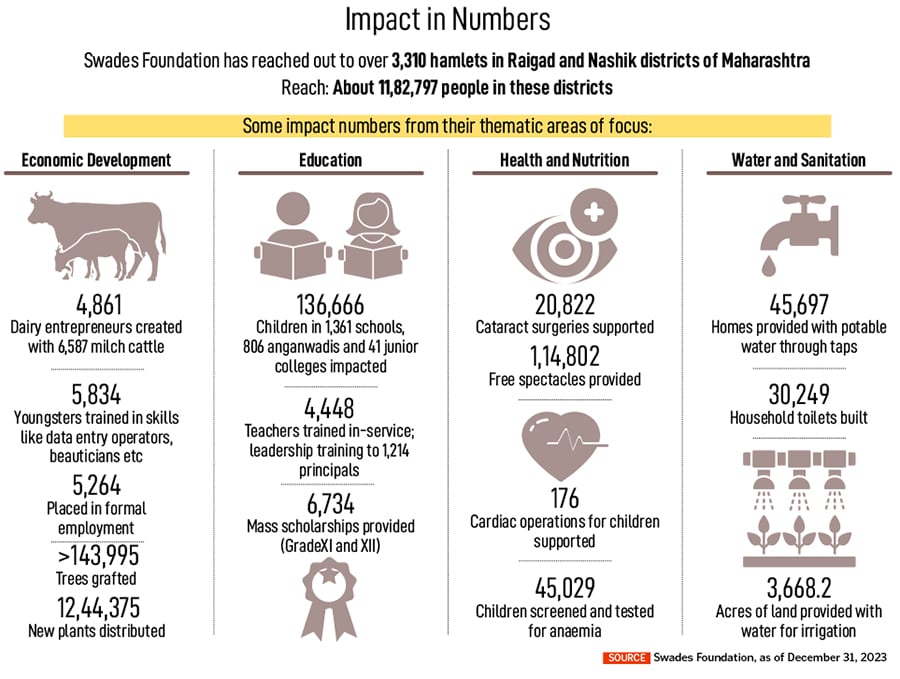
How Zarina and Ronnie Screwvala plan to take the Swades model to new districts
Zarina and Ronnie Screwvala's efforts to lift people out of poverty are showing results in Raigad and Nashik in Maharashtra. Now, they want to take the Swades model to other regions
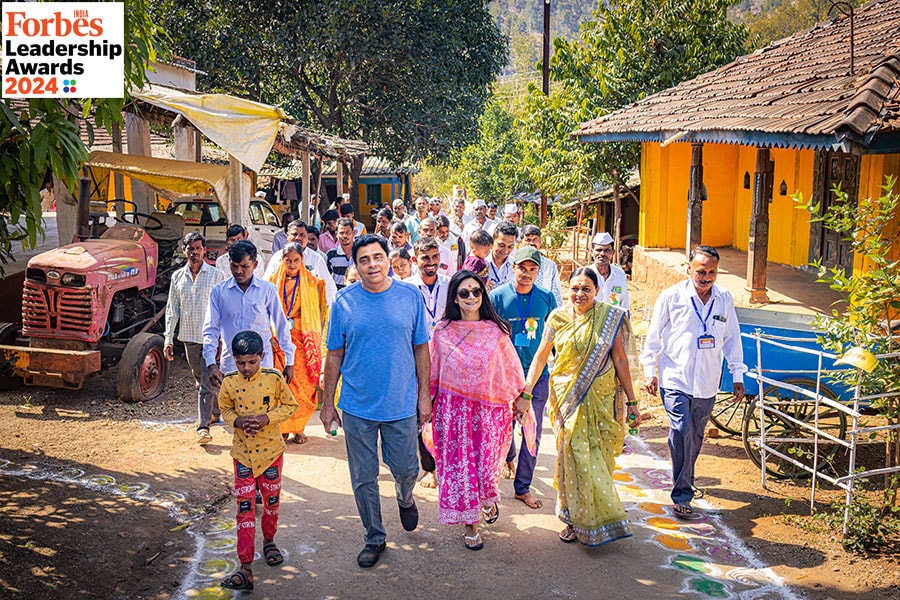 Ronnie (in T-shirt) and Zarina Screwvala (in pink kurta) visiting a village in Nashik where they work with the community
Image: Apoorva Salkade For Forbes India
Ronnie (in T-shirt) and Zarina Screwvala (in pink kurta) visiting a village in Nashik where they work with the community
Image: Apoorva Salkade For Forbes India
Zarina and Ronnie Screwvala celebrated Republic Day differently this year.
They visited a handful of villages like Hompada, Nandurkipada, Shenvad and Garudeshwar in Nashik, Maharashtra. Their non-profit, Swades Foundation, has been providing grassroots interventions related to education, skilling, health care, water security and livelihoods to the people in these villages since 2019. The meeting on January 26 was for Zarina and Ronnie to have conversations with the community to see the progress of these programmes, and identify what more needs to be done.
In one of the villages, a few young Adivasi boys came up to them and confessed that it had taken long for them to trust Zarina and Ronnie, and to accept their help. “They told us that when we had first come to their village [in 2019], they had gone online and researched everything about us,” recalls Zarina, sitting alongside Ronnie at the Swades Foundation office in Mumbai, a few days after the visit. They do not easily trust ‘outsiders’, and rightly so, she continues. “A lot of them have had bad experiences, so they should not trust you. I would encourage all of them to check.”
Ronnie, at this point, adds that while the internet and social media have made it easier for people to check and verify facts, the path to earn the rural community’s trust was slow and long-winded when they co-founded Swades a decade ago. Their presence in close to 2,700 villages and hamlets in Nashik and Raigad in Maharashtra today, therefore, has largely been on the backs of word-of-mouth awareness among the people.
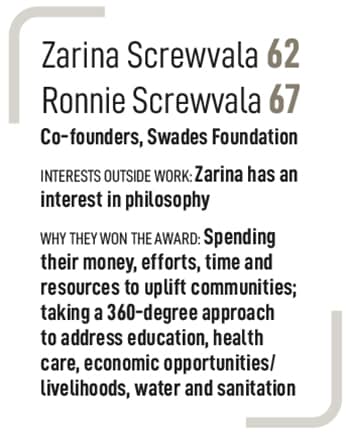 From 2013 till date, they have impacted about three quarters of a million people across various villages in these two districts. Their approach has been to go deep, rather than wide. They had launched the non-profit to “test and create a 360-degree, deep intervention model of rural development”, says Zarina.
From 2013 till date, they have impacted about three quarters of a million people across various villages in these two districts. Their approach has been to go deep, rather than wide. They had launched the non-profit to “test and create a 360-degree, deep intervention model of rural development”, says Zarina.




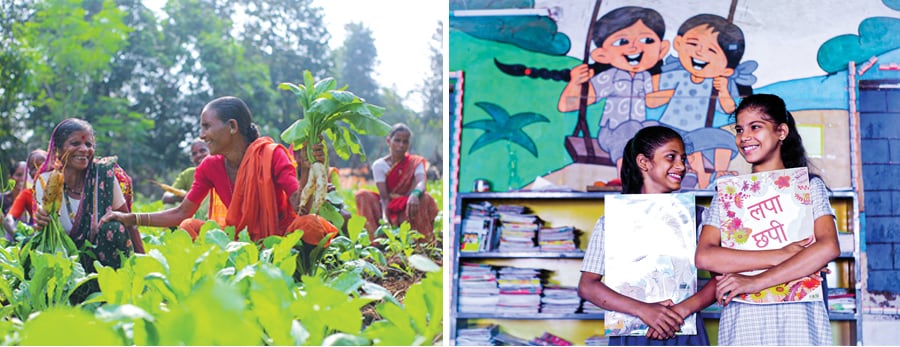
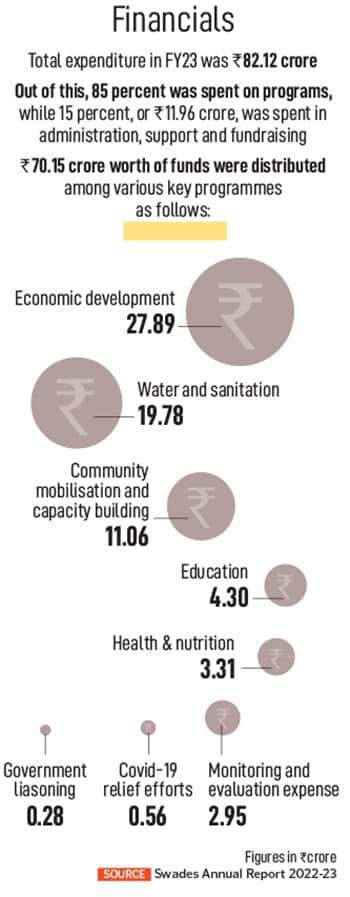 After they co-founded media company UTV in 1990, SHARE found a small space in their large office in Mumbai. “It worked pretty well,” Ronnie recalls, with employees often voluntarily staying back after office hours to be part of social development projects. It was one such employee who suggested they take a look at their uncle’s village in Raigad, where there was water shortage.
After they co-founded media company UTV in 1990, SHARE found a small space in their large office in Mumbai. “It worked pretty well,” Ronnie recalls, with employees often voluntarily staying back after office hours to be part of social development projects. It was one such employee who suggested they take a look at their uncle’s village in Raigad, where there was water shortage. 